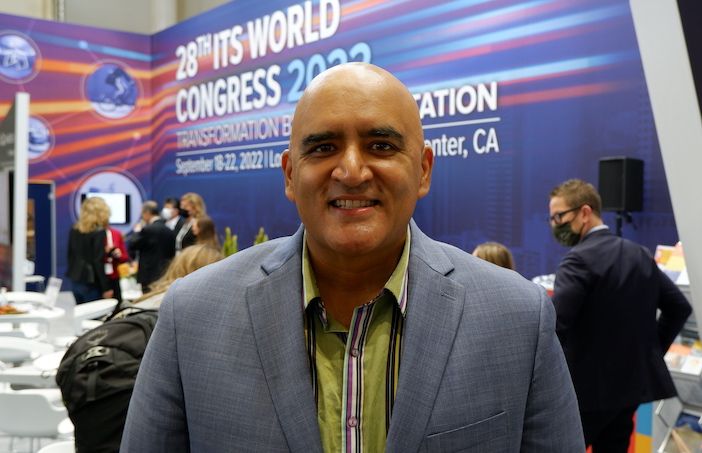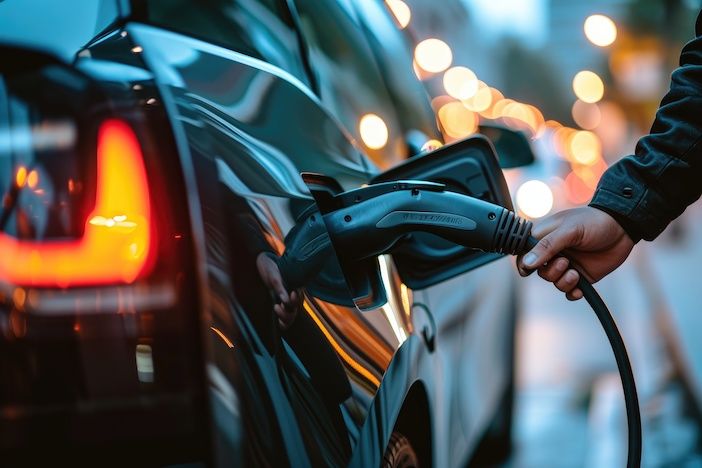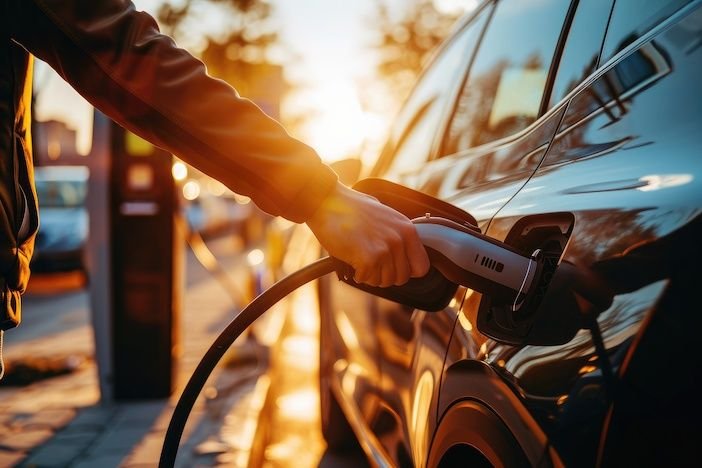The USDOT’s FHWA has announced a Request for Information (RFI) to solicit feedback from stakeholders on updating minimum standards and requirements for electric vehicle (EV) charging stations to allow for new technology and continued innovation.
The RFI today focuses on the types of connectors used at federally funded EV chargers. Current federal requirements allow for alternative types of connectors on all federally funded DC fast chargers so long as there is also a Combined Charging System (CCS) connector.
However, SAE International recently standardized the North American Charging Standard (NACS) connector as standardization J3400, making it possible for any supplier or manufacturer to use, manufacture, and deploy the NACS connector. A majority of automakers have announced they will adopt this connector standard on vehicles beginning in 2025, with adapters available for current owners as soon as spring 2024.
The RFI will help inform how FHWA can best incorporate new technologies and innovations like J3400 into its minimum standards and requirements for federally funded EV charging stations, continuing to ensure that the national EV charging network serves consumers well now and into the future.

“As EV charging technology continues to rapidly evolve, we want to ensure our federal standards for EV charging keep pace with private sector innovation, adapt to a quickly evolving industry, and meet the needs of EV drivers,” said FHWA Administrator Shailen Bhatt. “This RFI will help us gather important feedback from our federal, state, local, and private partners to inform potential updates to our federal standards with those goals in mind.”
The Bipartisan Infrastructure Law’s $7.5 billion investment to build out a national EV charging network is intended to enable as many Americans as possible to utilize the public charging network. FHWA designed its minimum standards and requirements for federally funded chargers to be flexible and responsive to rapidly advancing technology, creating space for innovation in a developing industry while setting standards to ensure a reliable consumer experience across the country.
Through the RFI, FHWA, in coordination with the Joint Office of Energy and Transportation and the Department of Energy, is seeking information in several key areas: (1) expectations surrounding market availability for J3400 within EVs and EV chargers, (2) technical compatibility of J3400 with existing regulations, (3) considerations regarding challenges and benefits of the implementation of J3400 at charging stations, (4) market demands for the continued availability of Combined Charging System (CCS) and J1772 connectors, and (5) potential options for performance-based standards that can reduce the need for future regulatory updates or changes as technology evolves. Comments must be received on or before April 5, 2024. Instructions for submitting comments can be found in the Federal Register Notice. Federal agencies will seek additional feedback from stakeholders on electrified heavy-duty vehicles (HDVs) later this year.

Electric car or EV is charging, Hand inserting EV charging plug to electric vehicle.
“The Joint Office facilitated industry collaboration that led SAE, automakers, and the EV charging industry to move at an unprecedented pace to establish an open standard for the J3400 connector,” said Gabe Klein, Executive Director of the Joint Office of Energy and Transportation. “Now, this RFI seeks input from stakeholders regarding how to incorporate this innovation into our national charging network.”
Under President Biden’s leadership, EV sales have more than quadrupled, the number of publicly available charging ports has grown by nearly 80 percent, and more than 4 million EVs are now on the road. Spurred by the President’s historic actions, private companies have announced more than $160 billion in EV and battery supply chain investments under the Biden-Harris Administration.
Growing the number of EVs on America’s roadways will help enable the rapid transition to clean transportation systems by reducing air pollution and greenhouse gas emissions from vehicles, major contributors to climate change and respiratory ailments. Updating the federal minimum standards to support the further deployment of EVs and EV infrastructure will help meet national climate goals, reduce harmful air pollutants, and promote vehicle choice by making it easy for all Americans – no matter where they live – to ride and drive electric.
[ad_2]
Source link




